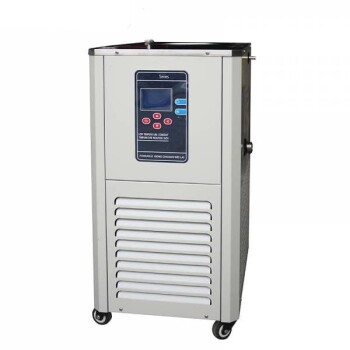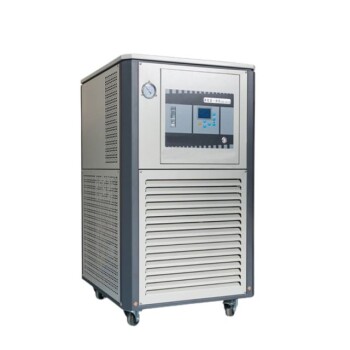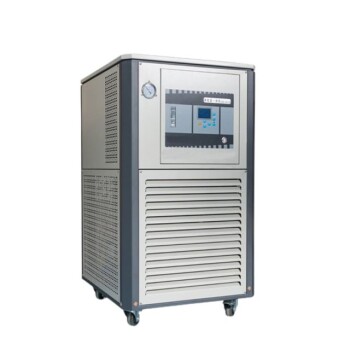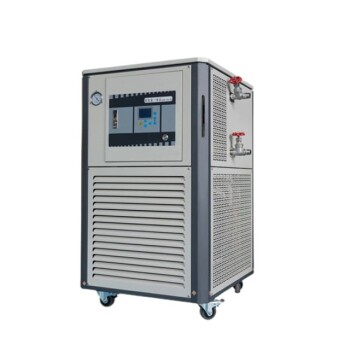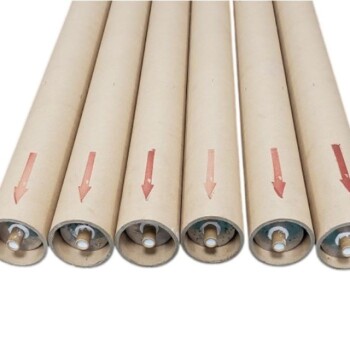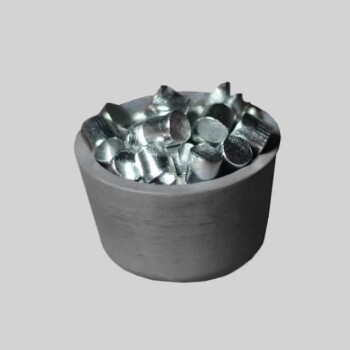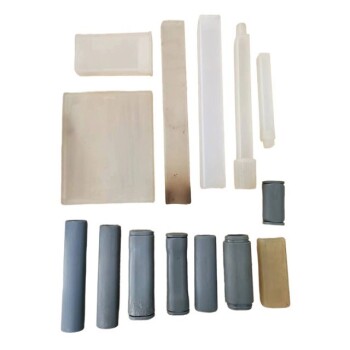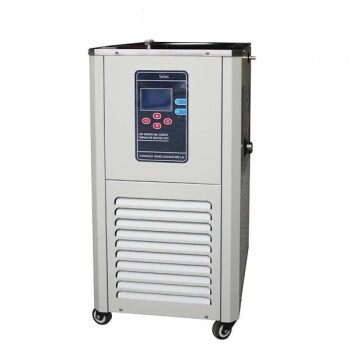The primary benefit of argon is its complete chemical inertness. As a noble gas, it does not react with other elements, making it an ideal protective shield in processes where unwanted reactions like oxidation are a critical concern, especially at extremely high temperatures.
Argon's core value lies in its absolute non-reactivity. While more expensive than alternatives like nitrogen, it is the gas of choice for high-temperature applications where even the slightest chemical reaction would compromise the integrity of the final product.
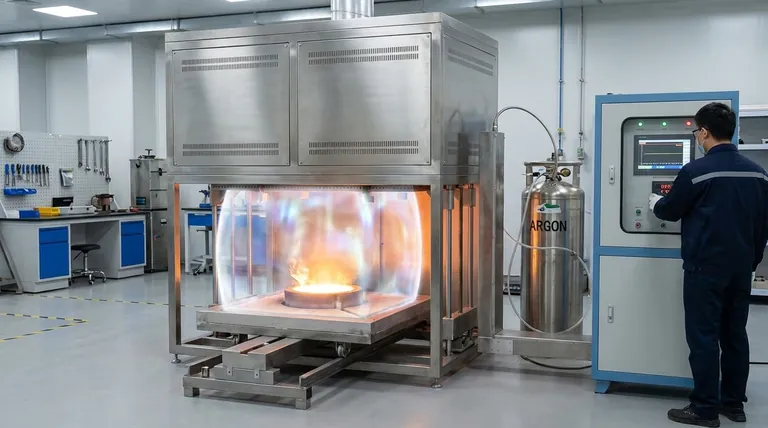
The Core Principle: Absolute Inertness
Argon's most significant benefit stems directly from its position on the periodic table. It is a noble gas, meaning its atomic structure is inherently stable and resistant to forming chemical bonds.
A Chemically Stable Shield
Because it does not react with other materials, argon can be used to create a protective atmosphere. It displaces reactive gases like oxygen, preventing undesirable chemical changes from occurring during a sensitive process.
Preventing Oxidation
The most common unwanted reaction is oxidation. By creating an argon-rich environment, materials are shielded from oxygen, which is crucial for preventing rust, degradation, or contamination during manufacturing and fabrication.
High-Temperature Stability
While other gases can provide an inert atmosphere, argon's stability at extreme temperatures sets it apart.
A Key Differentiator
Argon remains completely inert at temperatures exceeding 1800°C. This makes it indispensable for high-temperature industrial processes like specialized welding, metallurgy, and crystal growth where other gases might break down or react.
The Advantage Over Nitrogen
Nitrogen is often used as a cheaper inert gas. However, at very high temperatures, nitrogen can react with certain metals to form nitrides, which can alter the properties of the material. Argon has no such limitation, guaranteeing a pure, non-reactive environment regardless of the temperature.
Understanding the Trade-offs
Choosing argon is a decision based on balancing process requirements against cost. Its unique properties are not always necessary.
The Cost Factor
The primary drawback of argon is its higher cost compared to nitrogen. Its extraction and purification process is more complex, leading to a higher price point.
When the Cost is Justified
The additional expense is justified in high-stakes applications. For processes like TIG welding of specialty alloys or manufacturing sensitive electronics, the cost of a failed or contaminated product due to a minor reaction far outweighs the savings from using a cheaper gas.
Making the Right Choice for Your Goal
Selecting the correct inert gas depends entirely on the specific demands of your application, particularly temperature and material sensitivity.
- If your primary focus is cost-effective inerting at moderate temperatures: Nitrogen is often the most practical and economical choice.
- If your primary focus is absolute purity and high-temperature stability: Argon is the necessary choice to guarantee a completely non-reactive environment with sensitive materials.
Ultimately, choosing argon is an investment in process integrity and final product quality when conditions are most demanding.
Summary Table:
| Benefit | Key Advantage | Ideal For |
|---|---|---|
| Absolute Inertness | No chemical reactions, even at high temperatures | Protecting sensitive materials from oxidation |
| High-Temperature Stability | Remains inert above 1800°C | TIG welding, metallurgy, crystal growth |
| Superior Purity | Prevents nitride formation unlike nitrogen | Applications requiring guaranteed material integrity |
Ensure the integrity of your most sensitive processes with the right inert gas solution.
For demanding applications in welding, metallurgy, or electronics manufacturing where absolute purity and high-temperature stability are non-negotiable, argon is the essential choice to prevent oxidation and contamination.
KINTEK specializes in supplying high-purity gases and lab equipment to meet your precise requirements. Our experts can help you determine if argon is the right investment for your process integrity and final product quality.
Contact our specialists today to discuss your application and ensure optimal results.
Visual Guide

Related Products
- Laboratory Muffle Oven Furnace Bottom Lifting Muffle Furnace
- Aluminum Foil Current Collector for Lithium Battery
- Platinum Auxiliary Electrode for Laboratory Use
- 5L Chilling Circulator Cooling Water Bath Circulator for Low Temperature Constant Temperature Reaction Bath
- 20L Heating Chilling Circulator Cooling Water Bath Circulator for High and Low Temperature Constant Temperature Reaction
People Also Ask
- Which material is used in a muffle furnace? The Key to High-Temperature Performance and Purity
- What is the alternative to a laboratory oven? Find the Right Heating Tool for Your Lab
- What PPE is required for a muffle furnace? Essential Gear for High-Temperature Safety
- What is the main function of the muffle furnace? Achieve Pure, High-Temperature Heating Without Contamination
- What heat can a muffle furnace produce? Achieve Precise High Temperatures Up to 1800°C



